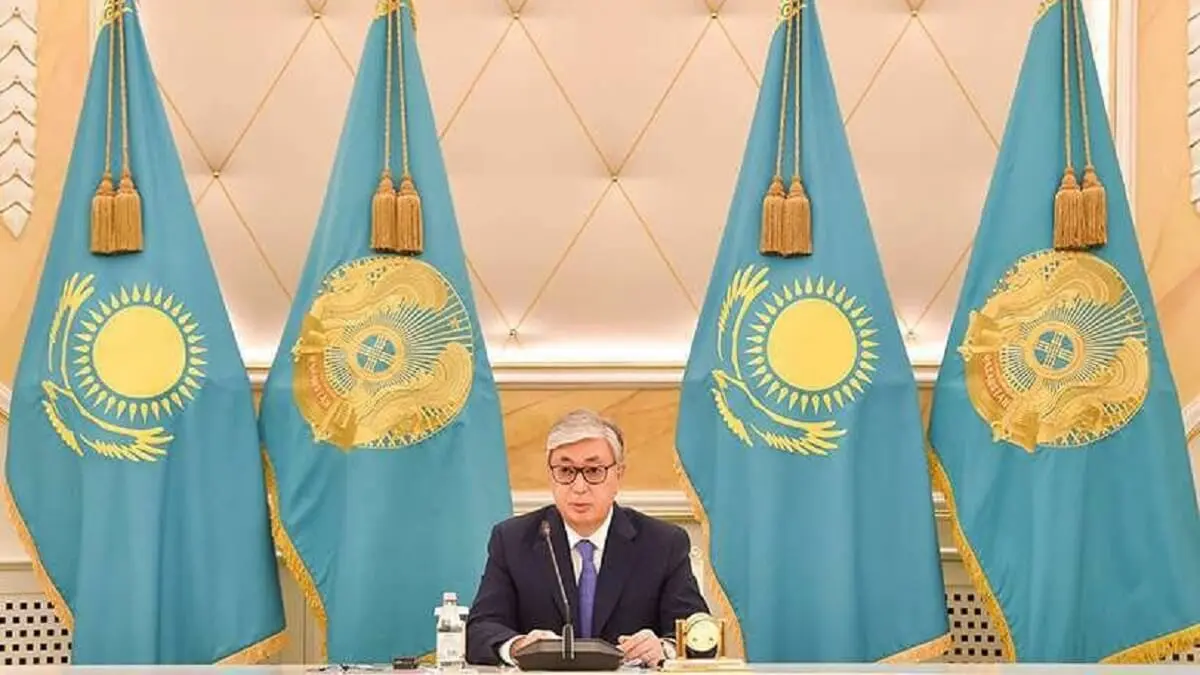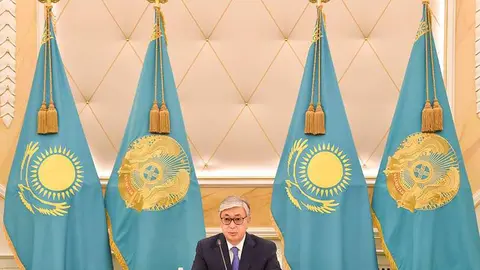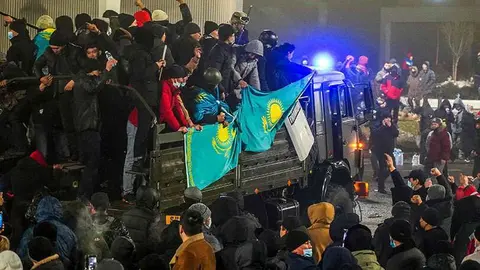Organized crime’s growing influence on Europe’s human rights agenda

The foundation of a functional democracy rests upon a populace empowered to maintain vigilant checks and balances on those in positions of authority. Voters rightfully expect and frequently demand that their chosen representatives authentically uphold and advocate for their interests. In a genuine democracy, the nefarious spectre of kleptocracy, which appropriates the state's resources for personal or familial gain, should be promptly rooted out.
The body politic is cleansed when corrupt officials are held accountable for their actions, and such measures should be celebrated both locally and by the international community at large. The narrative, however, is not always straightforward. Too often, the very kleptocrats who enrich themselves by appropriating a country's national resources are also the ones with the means to manipulate legal systems.
They do this by embedding their corruption deep within state systems, evading immediate justice and often fleeing their home countries with large amounts of stolen national treasures hidden in offshore locations. The magnitude of their ill-gotten wealth allows them not only to find such international refuge but also to weave a protective cocoon around themselves that shields them from facing justice.
Kleptocrats, however, are not invincible. They often find themselves teetering on the edge of legal precipices. They are potential targets for extradition and their vast offshore assets are not beyond the reach of asset recovery efforts. Nevertheless, they are resilient, and their resources allow them to inject politics into legal processes, effectively blocking or at least delaying asset recovery efforts and other attempts to bring them to justice. Their wealth also allows helps draw in a retinue of companies, lobbyists, lawyers, and even NGOs to join their fight, all of whom are ready to bend their loyalties for the right price.
Alleged criminal fugitives have not just sought refuge in the West but have actively tried to leverage the influence of governments here, creating ripples that echo far beyond their immediate geography. This interplay of influences can be observed in various global scenarios, with Kazakhstan in particular offering a compelling case study where the above-described dynamics are evident.
Kazakhstan has recently found itself in the global spotlight, emerging as a fascinating study of political metamorphosis. The January 2022 unrest quickly spiraled into a failed coup attempt. A group of elites of “Old Kazakhstan” were active instigators, escalating the events and turning them violent in an apparent attempt to mount a direct challenge to the country’s new authorities. Their orchestrated tactics were stark, with armed groups brazenly attacking key institutions. In light of these aggressive provocations, the government's resort to lethal force represented -- at least to some observers -- a measured and commensurate response.
Yet in the wake of the failed coup, Kazakhstan’s current government continued to move toward transparency, democratic governance, and accountability. It publicly acknowledged human rights violations that had occurred during the events. It chose to use the challenge as a lever for uncovering shortcomings that it inherited from the old regime and took tangible steps to rectify past transgressions of this former era.
Figures from the previous regime, once thought untouchable, faced rigorous prosecution for their financial crimes. More than just a legal response, this symbolic act represents a clear turning-away from the Old Kazakhstan. More materially, the recovered assets— part of the pilfered national wealth once hoarded by a select few—have been redirected to the country's Treasury to serve the broader population.
Yet those same Old Kazakhstan elites who squeezed the country dry for three decades seek to defend themselves by painting the new government of Kazakhstan as being overbearingly authoritarian. Their efforts at international image laundering have gone overboard. Mafia boss "Wild" Arman Dzhumageldiev even hired lobbyists in Washington to whitewash his violent role in the events of January 2022.
The activities of another mafia leader, Bergei Ryskaliyev, who allegedly embezzled $500 million, came under scrutiny after reports surfaced that he was funding a UK parliamentary investigation into Kazakhstani political dynamics. Such international machinations suggest a complex web of influence and counterinfluence. Kazakhstani people have begun to question the motivations of European officials and foreign NGOs that align themselves with these dubious figures.
The biggest fraudster associated with Kazakhstan is Mukhtar Ablyazov, whose misdeeds rival those of infamous Bernie Madoff. He siphoned off $7 billion from a Kazakhstani bank before fleeing first to the UK and then to France. Despite having over $5 billion in judgements against him in the UK and US courts alone, Ablyazov has been able to entice multiple EU officials to advocate on his behalf and protect his accomplices by alleging they were victims of human rights abuse. His primary lobbying organisation has been a shadowy Europe-based NGO called the Open Dialogue Foundation.
Indeed, the NGO facet of this scheme demands closer scrutiny. Historically NGOs—also known as the "third sector"—have served as watchdogs and advocated for rights, justice and transparency. Yet recently, certain representatives of this third sector have faced allegations of being tools of broader geopolitics and facilitating corruption.
The ongoing Qatargate scandal exposed several European officials commercialising their positions as human rights auditors. European NGOs like Fight Impunity and No Peace Without Justice, until recently known for championing human rights and accountability, have reportedly been implicated in the scandal. Curiously, these two NGOs had also chosen to oppose the detention of Karim Masimov, the Kazakhstani spy chief who led the January 2022 coup attempt. For those familiar with Kazakhstan, this was a very strange move. Masimov is not just another bureaucrat but is indeed widely recognized by genuine human rights activists as a symbol of the repression and corruption of the former president Nursultan Nazarbayev’s era.
Such instances are not isolated. The broader narrative of the weaponization of NGOs in Kazakhstan and beyond has been a growing concern. Investigations have even uncovered evidence of oligarch funding directed towards certain US-based NGOs.
If the third sector's sanctity is compromised, this casts a shadow on the very ideals the implicated NGOs claim to represent. It becomes imperative to discern genuine human rights activism from politically motivated posturing. The essence of human rights is at stake when crime syndicates can amass vast wealth and then, with a veneer of respectability, are celebrated by foreign policy elites as champions of the very nations they exploit.
Such a landscape necessitates rigorous scrutiny of NGOs and policy influencers, ensuring that the ideals of human rights are upheld in their purest form, untainted by kleptocratic alignments. The case of Kazakhstan provides a study in how kleptocrats can corrupt international institutions and hide behind the cloak of human rights advocacy. Instead, it is their ill-gotten wealth that these criminals want foreign organisations and officials to defend. Well-meaning international actors should note that helping asset recovery and repatriation efforts would benefit the people of Kazakhstan much more than attacking local government authorities over alleged human rights abuses pushed forward by self-serving kleptocrats.
Poul Andreasen - Danish expert in international relations.


